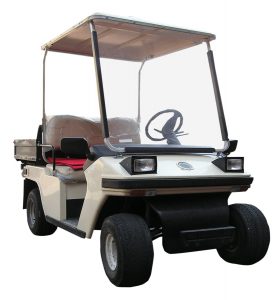 We represent a gentleman who was recently involved in a horrible crash while operating his Ford F-150 truck in a gated Lee County, Florida community. The operator of the other vehicle, which crossed into our client’s oncoming lane of traffic, died in the crash. Our client sustained significant personal injuries, including emotional distress. (For example, he is haunted from the experience of trying to help the dying man at the accident scene.)
We represent a gentleman who was recently involved in a horrible crash while operating his Ford F-150 truck in a gated Lee County, Florida community. The operator of the other vehicle, which crossed into our client’s oncoming lane of traffic, died in the crash. Our client sustained significant personal injuries, including emotional distress. (For example, he is haunted from the experience of trying to help the dying man at the accident scene.)
We are seeking compensation for our client’s damages. While Florida No-Fault Insurance (a/k/a “PIP”) may cover some of his medical expenses and lost wages, he did not maintain the type of coverage — UM/UIM — under his own motor vehicle policy to compensate for non-economic damages such as pain and suffering and for economic losses (e.g., wage loss (past) and loss of earning capacity (future)) and medical expenses in excess of the PIP policy limit (typically $10,000).
Our investigation has determined that the at-fault driver maintained bodily injury (BI) insurance under his own motor vehicle policy. The listed insured vehicle under the policy is a Lexus. At the time of the tragic crash, the insured was driving a golf cart or a modified golf cart known as a low speed vehicle. The vehicle was not listed in the insurance policy.
Section 320.01(22), Florida Statutes defines a “golf cart” as “a motor vehicle that is designed and maintained for operation on a golf course for sporting or recreational purposes and that is not capable of exceeding speeds of 20 miles per hour.” (emphasis added). By contrast, a “low-speed vehicle” is defined as “any four-wheeled electric vehicle whose top speed is greater than 20 miles per hour but not greater than 25 miles per hour, including neighborhood electric vehicles. Low-speed vehicles must comply with the safety standards in 49 C.F.R. s. 571.500 and s. 316.2122.” § 320.01(42), Fla. Stat. For insurance coverage purposes, the distinction might prove consequential in our case.
A “low speed vehicle” meets the definition of “motor vehicle” in section 324.021. Because section 324.151(1)(b) requires that an insurance policy issued pursuant to Florida’s Financial Responsibility Law “insure the person named therein against the loss from the liability imposed upon him or her by law for damages arising out of the use by the person of any motor vehicle not owned by him or her,” if the vehicle in our case was a low speed vehicle that was not owned by the at-fault driver, our client’s injuries should be covered by the gentleman’s motor vehicle insurance policy. If, however, the vehicle was owned by the driver or was a golf cart, it may not be covered under the negligent driver’s policy.
Regardless of who owned the vehicle and whether it was a golf cart or a low speed vehicle, the decedent’s estate is liable for our client’s damages. We have not determined if his estate, which has yet to be probated, has any assets.
If the vehicle, whether a golf cart or a low speed vehicle, is owned by a third party, like a country club, the owner is also liable for our client’s damages, in accordance with sections 324.021(9)(b). In Florida, the owner of an “inherently dangerous tool” is liable for any injuries or damages caused by the tool or its operation. In 1920, the Florida Supreme Court extended the so-called “dangerous instrumentality doctrine” to include motor vehicles. See Southern Cotton Oil v Anderson. In Meister v. Fisher, 462 So.2d 1071 (Fla. 1984), the Florida Supreme Court held that a golf cart is a dangerous instrumentality. It based its holding, in part, upon the fact that a golf cart is defined as a “motor vehicle” for purposes of traffic regulation and motor vehicle licensing. §§ 316.003(42), 320.01(22), Fla. Stat. (2018). The supreme court reasoned that virtually any motor vehicle sufficiently dangerous to be regulated by the legislature is also sufficiently dangerous to be subjected to court-imposed liability under the dangerous instrumentality doctrine. As a result of the dangerous instrumentality doctrine, a golf cart owner generally has unlimited vicarious liability for the negligence of any permissive operator.
As our case demonstrates, determining coverage and financial responsibility can sometimes take primary concern over establishing fault. In our case, fault is clear. Our hurdle has been in determining the source or sources from which the financial recovery will be made to make our client whole. (As an additional avenue of recovery, we are investigating whether the at-fault driver maintained homeowners insurance.)
********************************
Contact us at 305-758-4900 or by email to learn your legal rights.
Jeffrey P. Gale, P.A. is a South Florida based law firm committed to the judicial system and to representing and obtaining justice for individuals – the poor, the injured, the forgotten, the voiceless, the defenseless and the damned, and to protecting the rights of such people from corporate and government oppression. We do not represent government, corporations or large business interests.
While prompt resolution of your legal matter is our goal, our approach is fundamentally different. Our clients are “people” and not “cases” or “files.” We take the time to build a relationship with our clients, realizing that only through meaningful interaction can we best serve their needs. In this manner, we have been able to best help those requiring legal representation.
 Florida Injury Attorney Blawg
Florida Injury Attorney Blawg

